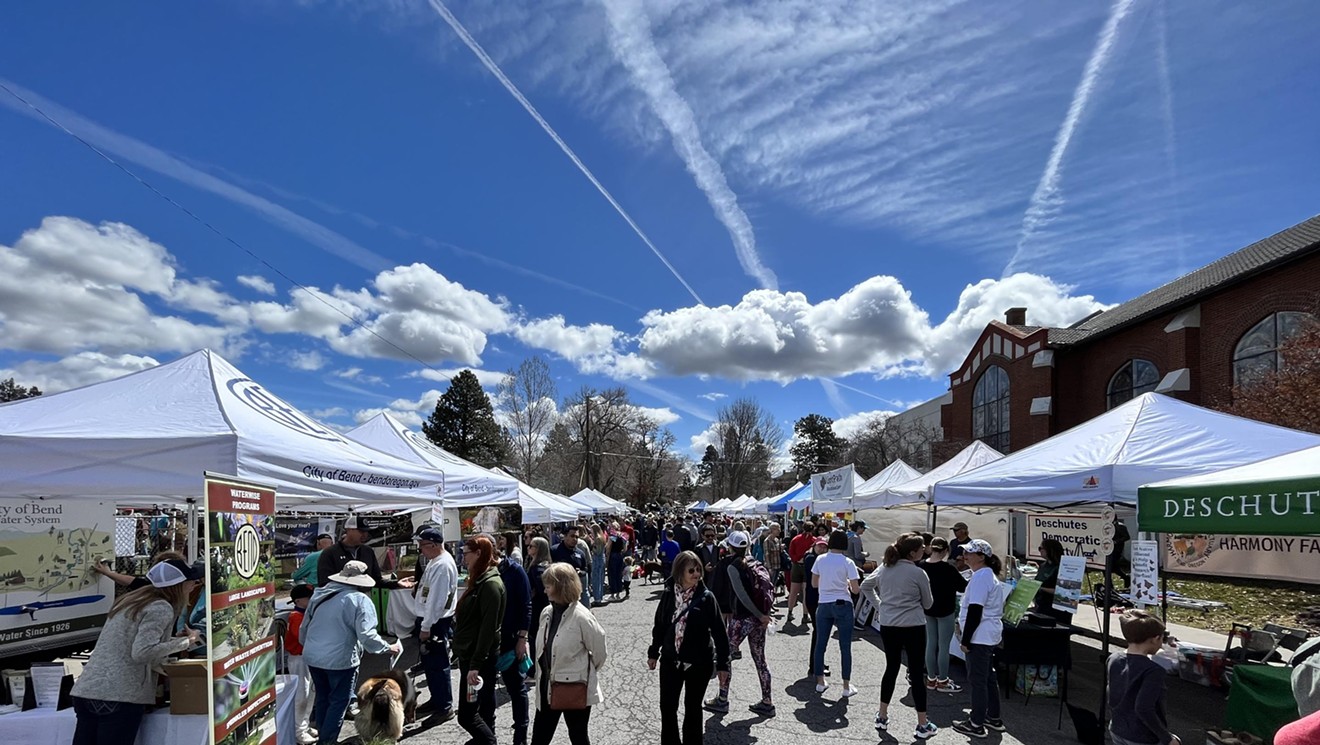Except for only very few readers, here's a sentence that will prompt yawns: On Wednesday July 15, the Deschutes County Commission plans to hold a public meeting on a proposed amendment to the County's land-use code allowing commercial wedding events on parcels designated for Exclusive Farm Use. Yawns all around, perhaps, but we three economists think that on this issue, the County is doing neither the right thing nor the thing right. And we think these two wrongs matter.
Some context helps. The Deschutes County Commissioners are nearing the end of the period for public comment on their update of the County's comprehensive, land-use plan. Coincidentally, they're nearing the end of their deliberations on the commercial wedding-events matter. What bothers us about both the big thing-the update of the comprehensive plan-and the deceptively little thing-the amendment to allow more commercial enterprises on EFU land-is that the County's land-use planning proceeds as if economics isn't relevant. In the March 12 meeting of Deschutes County's Planning Commission, for example, Planning Commissioner Chris Brown, addressing the commercial wedding-events issue, argued that economics has no bearing on land-use issues. Incredible.
A little economics may help, too. In the July 1 issue of The Source, the first part of this three-part series, we three identified the salient role quality of life plays on Oregon's economic stage. Deschutes County's extraordinary growth, for example, stems to a large extent from the County's quality of life. And that quality of life in turn stems from an exciting and complicated interplay between what economists call the County's human capital and its natural capital. Human capital is straightforward enough: it's the education and training embodied in, well, the bodies of the County's population. Natural capital? That's econo-speak for such natural assets as forested mountains and snow-capped peaks, clean streams and lakes, spectacular scenery and boundless recreation on millions of acres of public land. But we shouldn't overlook the smaller, though similarly important natural, ambient assets closer to the County's residents' homes, e.g., less noise (as in less "whooping and hollering," "blaring music," and "honking"-from the public record on the commercial weddings issue), less dust, less traffic, and so on.
Returning to the County's two wrongs, consider first its failure to do the right thing. A few examples of the wrong things make our point. To date, the County, without apologizing or even blushing, has deemed right for properties designated exclusively for farm use: a commercial paintball park, a commercial shooting range and, our favorite so far, a single parcel owner to host 61 commercial weddings during the better-weather months and, in a single seven-day period, 2,000 RVs plus their drivers and passengers. Suppose a new, young household from California buys a parcel in the County, outside city limits and surrounded by EFU parcels. One of the parents works for say Google or Facebook, spends two days a month in the Bay Area and the rest of the time telecommutes from home. The parents come with expectations for their residence: the special quality of life the location seems to offer, its apparent distance and insulation from large and noisy urban-like activities, and no shocking surprises from neighboring shooting ranges, paintball parks or annual venue for 61 weddings plus a parking lot for 2,000 RVs. In fact, this family isn't hypothetical; we know the parents and kids well. And we also know that if the County permitted such nasty neighboring surprises, the family may not have moved to Deschutes County in the first place, thereby depriving the County of jobs and incomes.
Consider next the County's failure to do the thing right. It proposes to insert a new and squirrely term-Private Park-into the land-use playbook. We call it "squirrely," because in neither the land-use case law nor Oregon's land-use goals and guideline is it defined. As a result, the County's residents can't reasonably anticipate the limits or restrictions from the County's interpretation of the term. In the record on this matter, the Oregon Department of Land Conservation and Development stated clearly enough that "[T]he nature of activities described in the proposal seem too intensive to be reasonably included as a private park in an exclusive farm use zoning district." But the County hasn't heeded the advice of DLCD or other agencies during the process: " ... the events allowed ... need ... permanent and adequate wastewater systems, and a public water system[s]" (Deschutes County Environmental Health Division); "...to enforce this amendment ... nothing good can come from 'shutting a wedding down' ... could result in arrests and/or violence (Deschutes County Sheriff); "... extremely concerned about the impacts that these types of events would have on sensitive wildlife habitat ..." (Oregon Department of Fish and Wildlife). The County's proposal becomes even more bewildering when you consider that ample, legal venues for these activities already exist in Deschutes County.
We conclude, therefore, that the County doesn't seem likely to changes its habits; it doesn't seem likely to do the right thing or the thing right. Why? Primarily because it seems almost terminally myopic, squinting at the small-scale, short-term matter at hand while oblivious to the cumulative, long-term effects. We think we know at least part of the reason for this myopia. In the economics of land-use planning, there exist two broad groups: those who opine frequently, even eloquently of "property rights" and those who speak as frequently and eloquently of "property rights and responsibilities." We think the County, far too often, stands with the first group. We three stand unequivocally with the second group, remembering that a property owner having both rights and responsibilities is a necessary condition for preserving quality of life and facilitating economic growth.
To some, it's no doubt a bit nervy of us, as economists to express our views so publicly on land-use policy. After all, only one of us-Whitelaw-lives here in Deschutes County. But all three of us are Oregonians, and have a stake in how our representatives, acting on our behalf here in Deschutes County and elsewhere in Oregon, manage our assets. The County, though, gifted with truly extraordinary natural assets-economic assets that have made it the envy of its counterparts throughout the West-through some combination of reason, chance and ignorance makes land-use decisions all too frequently as if these economic assets don't matter. In doing so, the Commissioners jeopardize the County's quality of life, thereby its human capital and thus its economic future.
Editor's note: Ed Whitelaw is the founder and president of ECONorthwest and a professor of economics at the University of Oregon. Bryce Ward is a senior economist at ECONorthwest and has taught at Harvard College, Lewis and Clark College and the University of Oregon. Andrew Kenny is a research associate at ECONorthwest and a senior at the University of Oregon.
The views expressed by the authors are their own and not in any representative capacity those of ECONorthwest, its clients or its other employees or of the University of Oregon, its other employees or its other students.



















